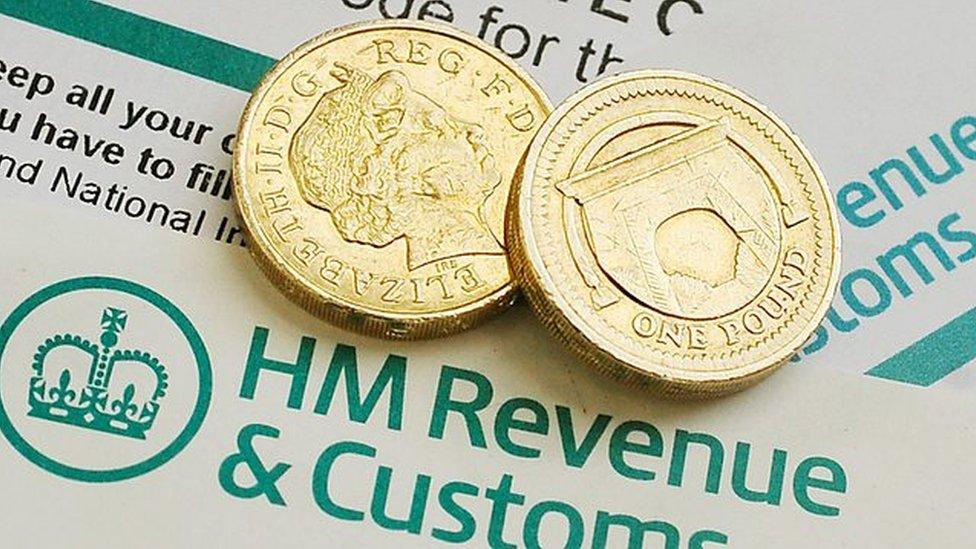Call for VAT devolution to Holyrood after Brexit
- Published

Control over VAT should be devolved to Holyrood after Brexit, according to think-tank Reform Scotland.
It said the UK withdrawal from the EU provides the opportunity to boost Holyrood's revenue-raising powers.
A portion of VAT revenues was assigned to the Scottish Parliament as part of a package of new powers.
But EU law does not allow a member state to vary rates within its own boundaries, preventing full control from being devolved.
The UK government said there were no plans to change the VAT controls due to be devolved to Holyrood.
The independent think-tank has sent a submission to the Scottish Parliament's European and External Relations Committee inquiry into Scotland's relationship with the EU, arguing there is now a case for VAT to be devolved in full.
Reform Scotland's director Geoff Mawdsley said there was no reason why the UK government could not devolve VAT in full to the Scottish Parliament once the UK has formally left the EU.
He added: "With income tax being the only major tax to be devolved under the current proposed settlement, over two-thirds of all tax revenue raised by Holyrood will be from that single source.
"This over-reliance on income tax means that there is little scope to effect real reform and create a better environment for economic growth. The devolution of VAT would enable Holyrood to raise a sum roughly equivalent to that of income tax.
"Crucially, it would broaden the range of devolved taxes, which would present a better opportunity for tax reform and mean that the Scottish Parliament would be responsible for raising 63% of the money that it spends.
'Wide-ranging powers'
A UK government spokesman said: "Under the Scotland Act 2016, the Scottish government will be assigned a share of the VAT raised in Scotland and there are no plans to change that.
"The Act delivers in full the UK government's promises of further devolution and will make Holyrood one of the most powerful devolved parliaments in the world.
"Holyrood is gaining wide-ranging new tax powers, including control of income tax rates and thresholds."
David Lonsdale, director of the Scottish Retail Consortium, said politicians at Holyrood had a direct stake in "facilitating a flourishing retail industry".
He said: "SRC has previously voiced concern over recent proposals for Scottish councils to be allowed to levy local sales taxes, and so it is important that the best interests of consumers and the economy are considered before any decision is taken on whether or not to fully devolve control over the setting of VAT rates, exemptions and the tax base.
"After all, retail sales in Scotland have consistently been at a low ebb and increases in council tax and employee pension contributions are already in the pipeline over the next year or two."